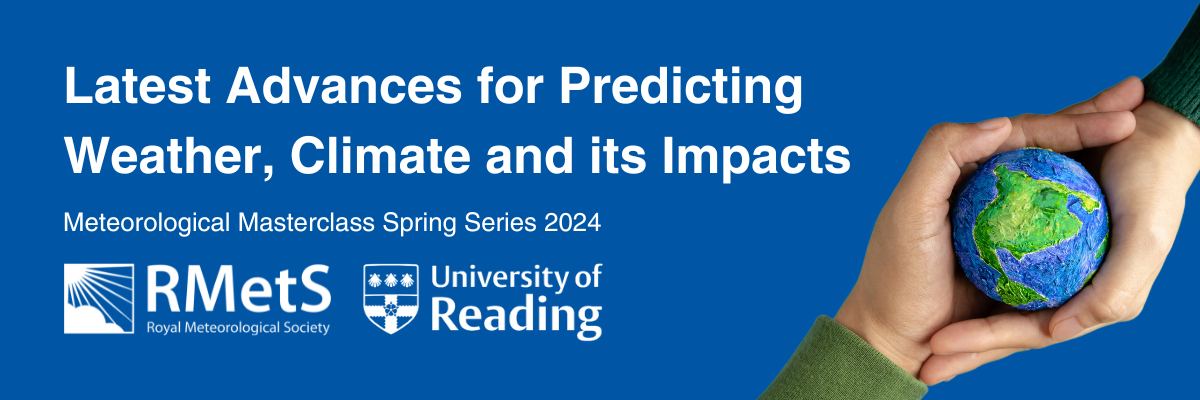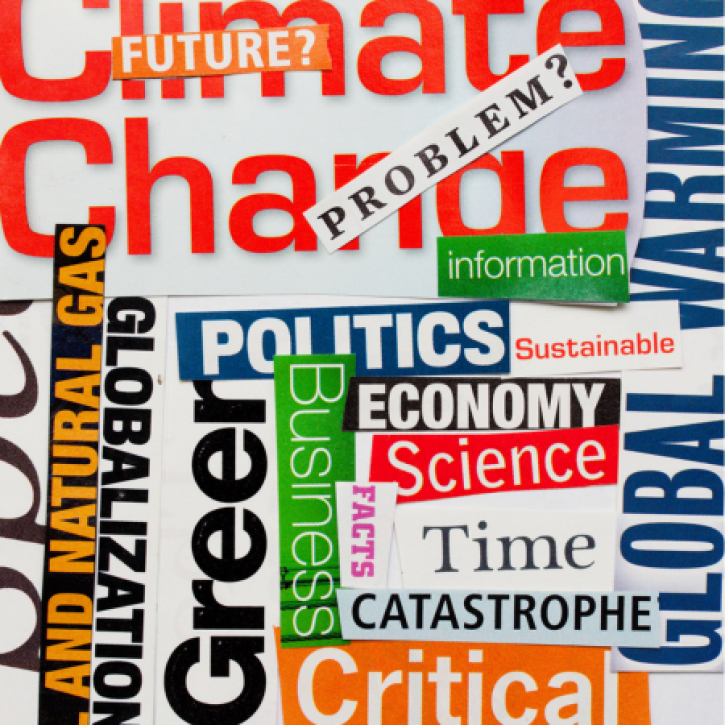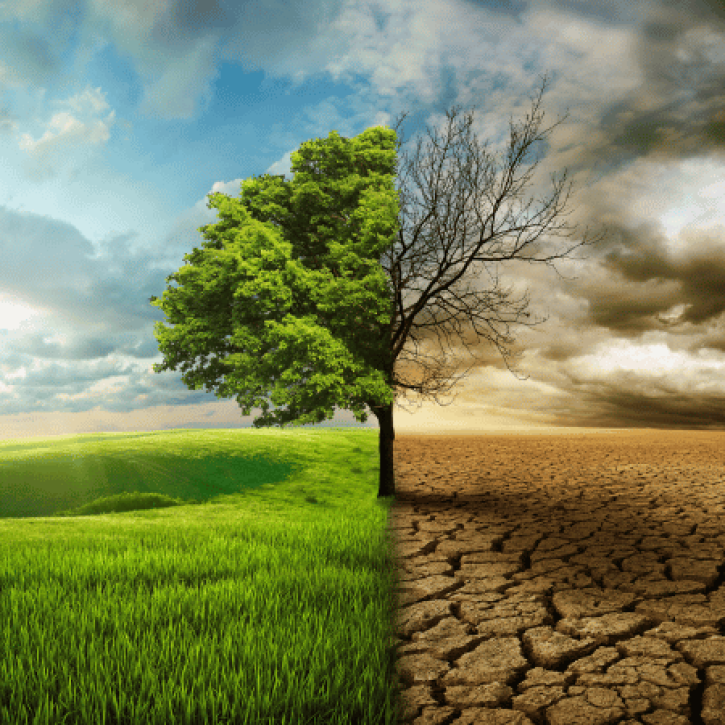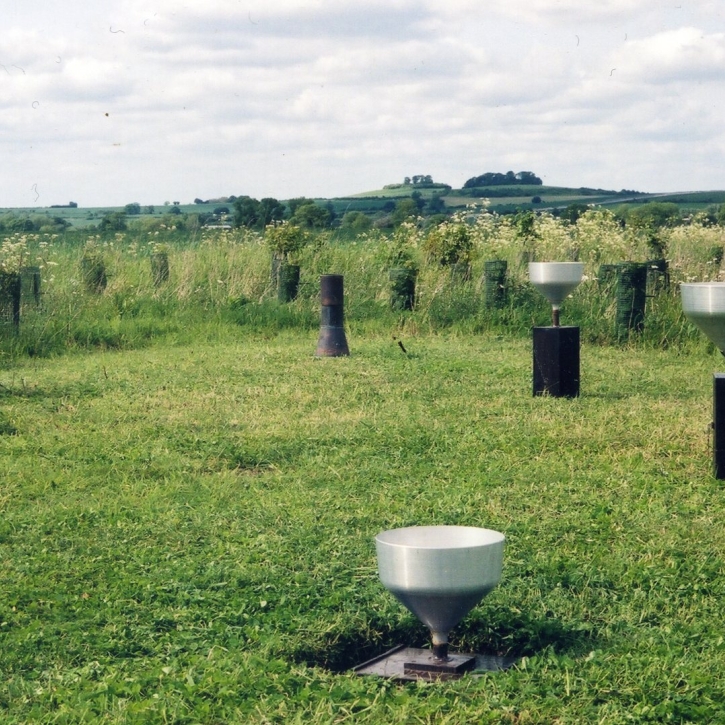

Masterclass | Cities and Climate Change
LOCATION
Virtual - Hosted on Zoom
Cities play a central role in climate change. They are home to 56% of the world’s population experiencing the effects of climate change and are responsible for 75% of global CO2 emissions. Despite projections of a 50% global energy demand increase by 2050, it is important that cities meet their energy demands whilst generating less CO2, reducing their burden on global warming. As well as cities being a cause of climate change, they are often particularly vulnerable to it because of their siting. For example, cities tend to be near coasts and rivers making them exposed to sea-level rise and flooding. Additionally, cities modify their climate, exacerbating temperature and precipitation extremes, due to having reduced vegetation and a large capacity to store heat. However, careful urban planning and mitigation strategies can be used to make cities more climate resilient. I will discuss the issues surrounding cities and climate change, pose possible solutions, and give examples of how weather and climate models can contribute towards developing healthy, sustainable cities.
Speaker
Speaker: Lewis Blunn

Lewis Blunn completed an integrated masters in Physics at the University of Manchester before working in industry as a geophysicist. He obtained his PhD at the University of Reading where he investigated and modelled urban turbulence at building to boundary layer scales. After working as a post-doc in Prof. Sue Grimmond’s urban research group he joined the Urban-scale modelling team at the Met Office in 2021. His main responsibilities there are the development and evaluation of sub-km grid length weather forecast models. He is passionate about advancing our future modelling capabilities, through both conventional and machine learning techniques, such that they bridge the gap between natural phenomena and human activities. This a crucial step towards achieving sustainable environmental solutions.
Responders
Will Hodder

Will Hodder is a research engineer in the Natural Hazards and Environment research team at the R&D UK Centre within EDF Energy. A core part of the team’s work is to help ensure that EDF’s nuclear power plants in the UK are resilient and safe in the face of extreme weather and climate change. In this role, Will applies and develops statistical methods based on extreme value theory for various stand-alone and compound hazards, and provides expert support to stakeholders.
Will has a masters in astrophysics from the University of Manchester and recently completed his PhD in mountain meteorology at the University of East Anglia, specifically on the topic of turbulent flux representation in the lee of mountains in numerical weather prediction models. He did part of his studies at the Met Office as part of a CASE partnership, and he co-organised and taught scientific python courses to academics and CEFAS personnel.
Claire Heaviside

Clare Heaviside is an Associate Professor in Climate Change, Cities and Health in the Institute for Environmental Design and Engineering at UCL. Her research is multi-disciplinary and covers climate change, air pollution, urban climate modelling, and associations with health. Clare is interested in how changes to the environment affect health, e.g., direct heat-related health impacts associated with the urban heat island, and how we might reduce some of these health impacts through adaptation measures, particularly in urban areas.
Clare has an MSc in meteorology from University of Reading, and a PhD in Atmospheric and Oceanic Physics from Imperial College London. After her PhD, she worked in the public health sector for almost a decade, becoming head of Climate Change at Public Health England in 2017, before joining University of Oxford and later UCL as a NERC Independent Research Fellow. Clare is PI of the Wellcome HEROIC (Health and Economic impacts of Reducing Overheating In Cities) project.
Registration
REGISTRATION IS NOW CLOSED
Registration for this event is closed.
If you have any queries with regards to this event or require any further information please contact us at meetings@rmets.org.
We take data privacy seriously. Please read the RMetS privacy policy to find out more.
Masterclass Series Abstract
Continuing its online Meteorological Masterclasses in partnership with the University of Reading, the Society is pleased to announce a new series for Spring 2024.
During this series, three leading experts from the University of Reading will discuss the latest scientific advances for understanding and predicting weather, climate, and its impacts.
These masterclasses are intended to provide support for professionals working in Meteorology and Climate Science, and its operational applications who wish to remain up to date on recent scientific developments in the field.
This series includes the following talks:
- The Record-Breaking Temperatures of 2023
- Drought in a Future Climate
Cities play a central role in climate change. They are home to 56% of the world’s population experiencing the effects of climate change and are responsible for 75% of global CO2 emissions. Despite projections of a 50% global energy demand increase by 2050, it is important that cities meet their energy demands whilst generating less CO2, reducing their burden on global warming. As well as cities being a cause of climate change, they are often particularly vulnerable to it because of their siting. For example, cities tend to be near coasts and rivers making them exposed to sea-level rise and flooding. Additionally, cities modify their climate, exacerbating temperature and precipitation extremes, due to having reduced vegetation and a large capacity to store heat. However, careful urban planning and mitigation strategies can be used to make cities more climate resilient. I will discuss the issues surrounding cities and climate change, pose possible solutions, and give examples of how weather and climate models can contribute towards developing healthy, sustainable cities.
Speaker
Speaker: Lewis Blunn

Lewis Blunn completed an integrated masters in Physics at the University of Manchester before working in industry as a geophysicist. He obtained his PhD at the University of Reading where he investigated and modelled urban turbulence at building to boundary layer scales. After working as a post-doc in Prof. Sue Grimmond’s urban research group he joined the Urban-scale modelling team at the Met Office in 2021. His main responsibilities there are the development and evaluation of sub-km grid length weather forecast models. He is passionate about advancing our future modelling capabilities, through both conventional and machine learning techniques, such that they bridge the gap between natural phenomena and human activities. This a crucial step towards achieving sustainable environmental solutions.
Responders
Will Hodder

Will Hodder is a research engineer in the Natural Hazards and Environment research team at the R&D UK Centre within EDF Energy. A core part of the team’s work is to help ensure that EDF’s nuclear power plants in the UK are resilient and safe in the face of extreme weather and climate change. In this role, Will applies and develops statistical methods based on extreme value theory for various stand-alone and compound hazards, and provides expert support to stakeholders.
Will has a masters in astrophysics from the University of Manchester and recently completed his PhD in mountain meteorology at the University of East Anglia, specifically on the topic of turbulent flux representation in the lee of mountains in numerical weather prediction models. He did part of his studies at the Met Office as part of a CASE partnership, and he co-organised and taught scientific python courses to academics and CEFAS personnel.
Claire Heaviside

Clare Heaviside is an Associate Professor in Climate Change, Cities and Health in the Institute for Environmental Design and Engineering at UCL. Her research is multi-disciplinary and covers climate change, air pollution, urban climate modelling, and associations with health. Clare is interested in how changes to the environment affect health, e.g., direct heat-related health impacts associated with the urban heat island, and how we might reduce some of these health impacts through adaptation measures, particularly in urban areas.
Clare has an MSc in meteorology from University of Reading, and a PhD in Atmospheric and Oceanic Physics from Imperial College London. After her PhD, she worked in the public health sector for almost a decade, becoming head of Climate Change at Public Health England in 2017, before joining University of Oxford and later UCL as a NERC Independent Research Fellow. Clare is PI of the Wellcome HEROIC (Health and Economic impacts of Reducing Overheating In Cities) project.
Registration
REGISTRATION IS NOW CLOSED
Registration for this event is closed.
If you have any queries with regards to this event or require any further information please contact us at meetings@rmets.org.
We take data privacy seriously. Please read the RMetS privacy policy to find out more.
Masterclass Series Abstract
Continuing its online Meteorological Masterclasses in partnership with the University of Reading, the Society is pleased to announce a new series for Spring 2024.
During this series, three leading experts from the University of Reading will discuss the latest scientific advances for understanding and predicting weather, climate, and its impacts.
These masterclasses are intended to provide support for professionals working in Meteorology and Climate Science, and its operational applications who wish to remain up to date on recent scientific developments in the field.
This series includes the following talks:
- The Record-Breaking Temperatures of 2023
- Drought in a Future Climate





